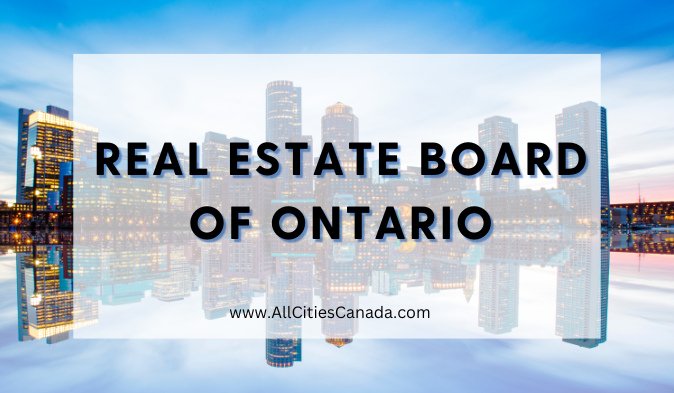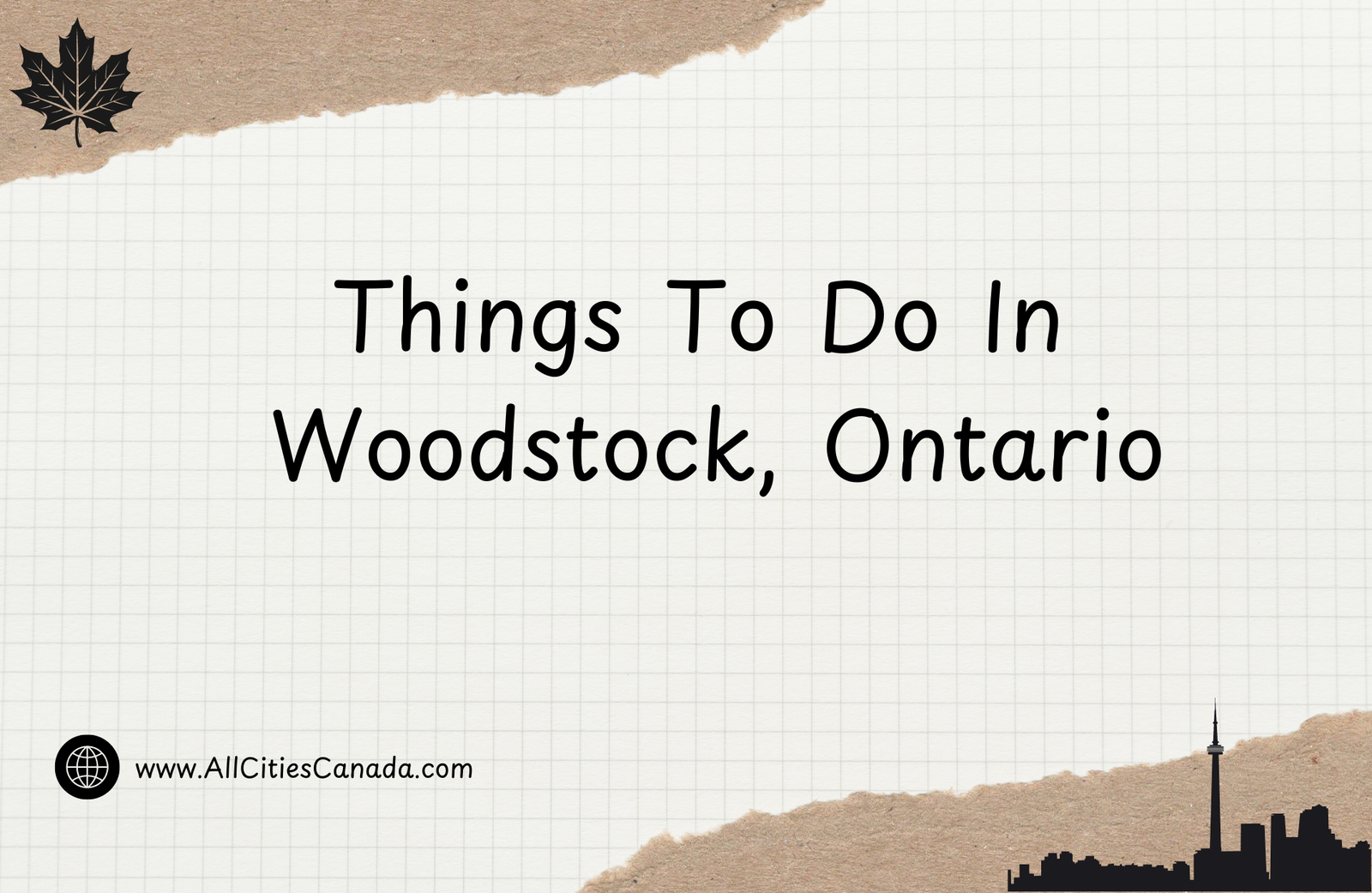
Real Estate Board Of Ontario
The real estate business is organized and controlled, but who does what? This is what we're going to make clear. First, let's look at Reco, which stands for the Real Estate Council of Ontario. In 1997, Reco was set up as a delegated administrative body. For the Ontario government, Reco is in charge of the Real Estate and Company Brokers Act 2002 and the rules that govern real estate companies.
Reco's goal is to provide excellent regulatory services that protect the public interest and boost customer trust in the real estate industry so that people can trade in real estate.
Real estate brokerages, brokers, and sales company Brokers Act 2002 and the rules that govern real estate companies people in Ontario must be listed with Reco, but there are some exceptions that are made by law.
For the sake of the general good, RECO controls the trade of real estate. Protecting the public interest is done by carrying out the registrar's tasks and ensuring that people follow the rules to get and keep their brokerage, broker, or salesperson registration.
Setting basic standards for pre-registration and continuing education, regularly checking brokerage offices to make sure they follow REBBA 2002, and teaching brokers of record how to answer questions and address concerns.
And concerns about registrants' behaviour from everywhere and doing what needs to be done to protect the public interest. Setting up and managing insurance requirements, such as protecting consumers' deposits, encouraging ongoing education, and providing competent, informed, and professional service.
Reco is also in charge of the code of ethics, which is one of the rules in REBBA 2000. All registrants must follow this rule, just like all other rules. The code tells brokerages, brokers, and salespeople how they should act.
The code includes things like privacy, written agreements, financial transparency, advertising, and written representation agreements.
Reco looks into complaints and worries about the behaviour of brokerages, brokers, and salespeople to protect the interests of consumers. All reports are looked into by Reco, who then decides if disciplinary action is needed. How harsh the punishment is will rest on what the complaint was about.
Reco defends consumers even more. For all registrants to be eligible for Reco's insurance program, which has three types of insurance coverage: errors and omissions insurance, commission protection insurance, and customer deposit insurance, they must all take part in it. People don't have to pay anything to get consumer deposit insurance.
This is the money that people who register pay for their insurance payments. When dealing with registered real estate agents and salespeople, your transactions are safe in case they go bankrupt or steal your money. Reco's scheme for required continuing education is great for the field.
This program aims to help registrants improve their skills as professionals and give clients up-to-date, correct information. People who sign up for the continuing education program have to keep their knowledge and skills up to date by meeting certain educational standards every two years.
Also, the RECO website and the RECO newsletter. For the record, give people who have registered up-to-date and useful news and information.
As required by the act, each of us must take a course on the rules and regulations that apply to our job. As part of its normal business, Reco checks the brokerage offices on a frequent basis.
In addition to making sure that brokerages follow the rules set by regulators, the review process also gives Reco a chance to teach them how to keep good records.
During these trips, trade record sheets, accounting records, and the handling of trust funds are usually looked at. Reco also checks up on new brokerages when asked to ensure they keep accurate and up-to-date records from the beginning.
Again, what does Reco's job entail? Its job is to enforce the rules needed to become and stay registered as a brokerage, broker, or salesperson, to oversee the Real Estate and Business Brokers Act 2002, and to control the trade of real estate on behalf of the Ontario government. Visit www.Reco.on.ca to find out more about Reco.
Now that you have a better idea of what Reco does in the real estate business let's look at some of the things that people often get wrong. You may have heard of words like "real estate agent," "organized real estate," and "non-real." You might need help understanding what they mean, so let's take a closer look.
Starting with organized real estate, most industries have groups that look out for the interests of their members. There are three stages to this thing that is called "organized real estate." At the local level, real estate boards, brokers, and salespeople join a real estate board and become part of organized real estate.
These people may call themselves realtors. The Ontario Real Estate Association (OREA) speaks for real estate agents at the national level. All real estate agents in Canada are represented by the Canadian Real Estate Association, or CREA.
Because of a deal between three groups, when you join a real estate board, you also join OREA and CREA. Knowing that you don't have to join organized real estate is important. To sell real estate, you don't need to join a board. In Ontario, you can only trade real estate if you are a Reco registrar.
Indeed, there are thousands of applicants who do a great job without becoming part of organized real estate.
Real Estate Board Of Ontario:
How is real estate organized in Ontario?
Local, regional, and national are the three levels.
At the neighbourhood level, real estate boards look out for the interests of real estate agents. One example is the Toronto Regional Real Estate Board (TREB), which speaks for real estate agents at the provincial level.
-
OREA represents realtor interests at the provincial level.
-
CREA represents the interests of all realtors in Canada.
Now that you know what organized real estate is, let's take a look at the three stages and what services they offer to real estate agents. By holding classes and seminars, real estate boards work hard to make sure that their members' professional knowledge and skills are up to date. The information and skills you learn in these classes are very useful on the job.
Another important service that boards offer is advocacy. Big or little. All boards make sure that town counsellors and politicians in cities and towns put the needs of their industry first. The Ontario Real Estate Association is the group for the whole province. More than 82,000 agents and salespeople from the 40 real estate boards in the province are members of OREA.
OREA aims to assist real estate agents, firms, and groups in Ontario. OREA helps its members in a number of public ways. There are training and special services. As part of an agreement between the college and Reco, OREA also runs all real estate registration classes in Ontario through the OREA Real Estate College.
The college offers the lessons in three different ways so that as many people as possible can take them: in-person, online, and through correspondence. For people who learn best when they are alone, the classroom is a lively and dynamic place to be. Whether it's a textbook or a CD-ROM, correspondence gives you the most freedom and power.
People who are good with computers can take classes online through E-Learning, allowing them to learn from anywhere with internet access.
The Canadian Real Estate Association offers many services and goods to real estate agents in Canada. There are three main ones: a voice in the federal government, access to realtor.ca, Canada's biggest public real estate database, and standard forums that people can fill out themselves, also known as web forums. CREA owns the MLS brand and has a stake in the realtor.
Real estate agents in Canada who follow a strict code of ethics can only use these brands. In its standards of business behaviour, CREA sets out a code of ethics for realtors that all of them must agree to follow. CREA runs a national ad campaign to show people how valuable it is to work with an agent.
At the end of this article, we hope you have a better idea of how Ontario's real estate market works, who the different players are and what their jobs are.
Who in Ontario is in charge of regulating real estate agents?
The Real Estate Council of Ontario (RECO) oversees and regulates real estate in the province of Ontario. This means that RECO is in charge of deals that happen in this area on behalf of the government. Because of this, all salespeople and brokers need to be listed with this group in order to do business.
Can you report a real estate agent in Ontario?
At RECO, we take complaints from both buyers and sellers of real estate very seriously. Our complaints method is meant to be fair and give a full look into any issues brought up, no matter if there has been a violation of the law or the Code of Ethics. You don't have to make any assumptions about your problem before we look at it; our experienced team will do that for you.
How long do you have to follow the law in Ontario if you're selling a house?
The seller's job is to keep the property in good shape until the deal is finished and you take ownership of it. So, they are the only ones responsible for any damage done or things left out of a sale before you bought them. However, as soon as the money for the buy is transferred and you take possession of the property, you become responsible for everything.
Is there a way for buyers in Ontario to back out of a real estate deal that has already started?
Is it possible for a seller to back out of a deal by not wanting to close? Without a doubt not. So long as this happens, the buyer is free to sue the seller in court.
What does RECO stand for?
RECO is a non-profit organization that the local government has given the job of enforcing the Real Estate and Business Brokers Act, 2002 (REBBA 2002) and related rules.
How much does it cost in Ontario to become a real estate agent?
Setting aside about $7,500 is a good amount of money to pay for getting your real estate agent license in Ontario. Among these are:
-
Fees for required real estate classes and tests are usually between $2,000 and $3,000.
-
You have to pay $430 to RECO for the application, registration, and test fees.
-
Professional liability protection for one year costs $500.
-
Dues to join a local real estate board ($1,500 to $2,500)
-
Extra costs, like books, materials, marketing costs, and so on ($500 to $1,000)
It costs a lot because you have to pay for pre-licensing instruction and local board fees. Overall, $7,500 is a good guess for how much it will cost to become a registered real estate agent in Ontario and be able to work there after meeting the RECO standards. Costs can differ for each person depending on their lessons and the boards they join.
How Much Does It Cost, How Long Does It Take, and What Are the Differences?
In Ontario, you'll need a RECO license if you want to work in real estate. Getting a license makes sure that people know you work in the field and that you can properly do it.
In Ontario, you must take classes and pass a test before becoming a licensed real estate agent. The whole process usually takes a year.
Fees would be the main way you make money as an agent. A real estate agent in Canada makes about $106,062 a year on average. Their commissions are generally about 6% of the sale price of the home.
Finally, there is a difference between the words "realtor" and "real estate agent" when it comes to residential real estate. A realtor is a certain group member and can work as either a dealer or a broker. Conversely, agents help people buy and sell homes, while brokers are more trained and can oversee other agents.
Summary:
-
RECO regulates Ontario's real estate industry under the Real Estate and Business Brokers Act 2002.
-
RECO enforces ethics and manages error, commission, and deposit insurance to safeguard consumers.
-
Realtors in Ontario join local boards, OREA and CREA, for advocacy, development, and national representation.
-
RECO investigates real estate professionals' complaints and takes disciplinary action.
-
Being a real estate agent in Ontario costs $7,500, including training, RECO registration, insurance, and other costs.
-
Buyers can lawfully back out, but sellers must maintain the property until the purchase is final.
FAQS
Q1. What is RECO, and what is its role in the real estate industry in Ontario?
RECO stands for the Real Estate Council of Ontario. It is a delegated administrative body established in 1997 to oversee and regulate the real estate industry in the province. RECO enforces the Real Estate and Business Brokers Act, 2002 (REBBA 2002) and related rules to ensure public protection and maintain the integrity of the real estate market.
Q2. How does RECO protect the interests of consumers in real estate transactions?
RECO protects consumers by regulating the behaviour of brokerages, brokers, and salespeople. This includes setting and enforcing pre-registration and continuing education standards, handling complaints, managing insurance requirements, and overseeing the code of ethics outlined in REBBA 2000.
Q3. What is the purpose of RECO's insurance program, and what types of coverage does it provide?
RECO's insurance program includes errors and omissions, commission protection, and customer deposit insurance. It ensures that registered real estate professionals protect consumers in case of financial loss or misconduct.
Q4. What is organized real estate, and how does it operate in Ontario?
Organized real estate involves local real estate boards, provincial representation by the Ontario Real Estate Association (OREA), and national representation by the Canadian Real Estate Association (CREA). These organizations advocate for the interests of their members, provide professional development opportunities, and offer various services.
Q5. Do real estate agents in Ontario have to join organized real estate?
While many real estate professionals choose to join organized real estate for its benefits, it is not mandatory to trade real estate in Ontario. Registration with RECO is essential for conducting real estate business in the province.
Q6. How can consumers report a real estate agent in Ontario to RECO?
Consumers can file complaints with RECO regarding the behaviour of real estate brokerages, brokers, or salespeople. The complaints process is designed to be fair and thorough, addressing potential violations of the law or the Code of Ethics.
Q7. What are the responsibilities of sellers in Ontario before and after a real estate transaction?
Sellers are responsible for maintaining the property until the deal is completed. Once the sale is finalized, the buyer assumes responsibility for the property.
Q8. Is it possible for buyers in Ontario to back out of a real estate deal once it has started?
Buyers have legal rights to back out of a real estate deal under certain circumstances. However, sellers cannot back out of a deal once it has been agreed upon, and the buyer can take legal action if this occurs.
Q9. How much does becoming a real estate agent in Ontario cost, and what are the associated expenses?
The estimated cost to become a registered real estate agent in Ontario is around $7,500, covering fees for classes, RECO application and registration, professional liability protection, local board dues, and additional costs like books and marketing.
Q10. What is the difference between a realtor and a real estate agent in Ontario?
A realtor is a member of organized real estate and can work as either a dealer or a broker. Real estate agents help people buy and sell homes, while brokers have additional training and can oversee other agents.
You can also check the information regarding How to find Toronto Island Airport Taxi



